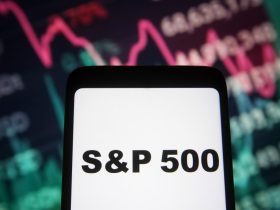U.S. job growth continued at a moderate pace in August while the unemployment rate unexpectedly jumped, a sign that the labor market is finally cooling in the face of rising interest rates and chronic inflation.
Employers added 187,000 jobs in August, the Labor Department said in its monthly payroll report released Friday, topping the 170,000 jobs forecast by Refinitiv economists.
At the same time, a separate report based on a survey of households offered a slightly different picture of the labor market. The report indicated that the unemployment rate climbed to 3.8% from 3.5% as the labor force participation rate rose to a nearly three-year high. It marked the highest jobless rate since February 2022 and the biggest increase since the early days of the COVID-19 pandemic.
The report also contained sharp downward revisions to job growth earlier this summer. Gains for June and July were revised down by a total of 110,000 jobs to a respective 105,000 and 157,000, the government said, suggesting that the labor market is weaker than it previously appeared.
WORKERS NOW DEMANDING NEARLY $80K TO START NEW JOB
“Sharp downside revisions to job gains in 2023 and a higher unemployment rate take some steam out of the labor picture,” said Ben Ayers, senior economist at Nationwide. “But it’s still a good market for workers with plentiful job openings and continued wage gains, prompting more to jump back into the workforce.”
Average hourly earnings — a key measure of inflation — increased 0.2% for the month and remain up 4.3% from the same time one year ago. Both figures came in under estimates, a welcome sign for the Federal Reserve.
JOB OPENINGS DROP MORE THAN EXPECTED IN JULY TO 2-YEAR LOW
Fed policymakers have indicated that they are closely watching the report for evidence the labor market is softening after more than a year of interest rate hikes.
The slowdown in hiring, coupled with the spike in unemployment and cooling wage growth, likely provides the U.S. central bank fodder to hit pause on its rate-hike campaign in September, and possibly November.
The odds of a September rate hike tumbled to just 7% on Friday after the latest jobs data, according to the CME Group’s FedWatch Tool, which tracks trading. Investors also lowered their expectations of a November rate increase, with just 36.5% of traders predicting another hike.
“The Fed couldn’t hope for a better report in their fight against inflation,” said Chris Zaccarelli, chief investment officer at Independent Advisor Alliance. “Wages are down slightly, and the unemployment rate ticked up, both of which are signs that wage pressures and an overheated job market are subsiding.”
| Ticker | Security | Last | Change | Change % |
|---|---|---|---|---|
| I:DJI | DOW JONES AVERAGES | 34837.71 | +115.80 | +0.33% |
| I:COMP | NASDAQ COMPOSITE INDEX | 14031.814531 | -3.15 | -0.02% |
| SP500 | S&P 500 | 4515.77 | +8.11 | +0.18% |
Job gains were broad-based last month, with the biggest gains in health care (71,000), leisure and hospitality (40,000), social assistance (26,000) and construction (22,000).
However, some sectors shed jobs last month: Transportation and warehousing lost 34,000 jobs after trucking giant Yellow filed bankruptcy, while jobs in information fell by 15,000. Employment in the entertainment industry also shrank last month, reflecting the ongoing actor and writer strike that has shut down most Hollywood productions.
The labor market has remained historically tight over the past year, defying economists’ expectations for a slowdown. However, there are signs that it is beginning to soften.
A separate report released on Wednesday showed that job openings dipped to 8.8 million at the end of July. Although it marked the lowest level for job openings since March 2021, there remain about 1.5 available jobs per unemployed person — well above the typical pre-pandemic ratio.
“The reality is there’s some softening, but it’s not terribly substantial,” said Sean Snaith, a University of Central Florida economist. “Year over year, we’ve only seen one-tenth of a percentage point uptick in unemployment. The Fed’s rate hikes may be working, but they’re working very slowly.”
Read the full article here













Leave a Reply